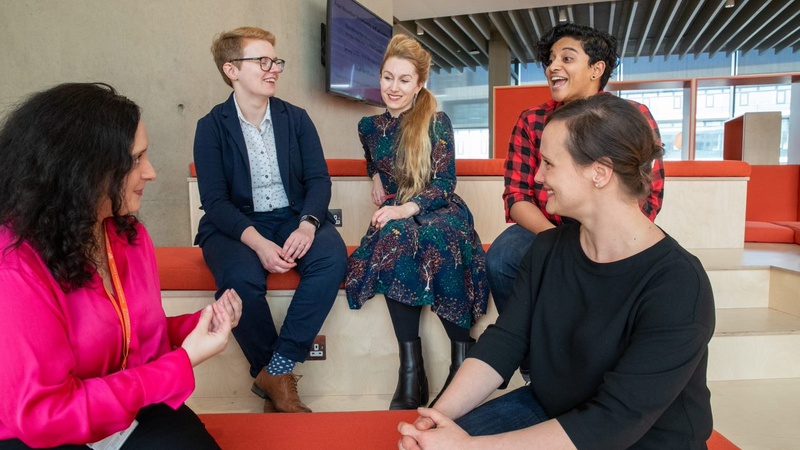As we gear up for teaching in the new academic year, our teaching team wanted to share some of their thoughts on the coming year. You can find out more about their academic interests and teaching areas here.
What are you most looking forward to in teaching on the Foundation Year?
Dr Corinne Roughley:
Firstly, I’m really excited about the chance to contribute to an important initiative which I believe will significantly increase the opportunities for students who have overcome disadvantages to study in Cambridge. And it’s not just about access – core to the course is supporting our students to acquire key academic literacies which will enable them to flourish. That’s something which is really important to me, but I also know from previous experiences that students from diverse backgrounds bring their different perspectives and experiences with them so I will be learning too. And far more than I’d anticipated when I started my job, the innovative interdisciplinary curriculum is challenging me to think in new ways about the topics we will be covering.
Dr Marieke Dhont:
When I saw the diversity of this first group of students, I felt so proud, thinking to myself “Yes! This is the future of Cambridge.” The programme represents exactly what I wish for our university: inclusivity and kindness, alongside a high academic standard. After the past years of mostly online work, I cannot wait to connect face to face with students on a regular basis. I look forward to teaching them and walking alongside them as they figure out university life and the next steps for their future.
Dr Shyane Siriwardena:
I'm most looking forward to the seminars and supervisions we'll be running on each paper. There's nothing more exciting than a room full of people working together to understand and unpick complex ideas. So much of what we study in the arts, humanities and social sciences involves looking at old things through a new lens--making the familiar strange and the strange familiar. In seminars and supervisions, we want students to really get their hands dirty, as it were, sharing their experiences and applying the concepts they've learned to those experiences.
What do you hope students will get out of the programme?
Dr Ruth Jackson Ravenscroft:
I hope the students are inspired to cultivate their ability to think critically, to read widely and deeply, and to be self-reflective about how they approach particular topics or ideas or texts. It will be brilliant to see them asking what assumptions are at play in the different source material, and whether these assumptions are justified. I also hope they enjoy working collaboratively with each other on the modules. Finally, I hope they come to appreciate the value of considering different disciplinary approaches to the same questions or problems. This multidisciplinary grounding will really benefit them at degree level!
Dr Claire Wilkinson:
Each student offered a place on the programme has so much potential. The FY is going to help them unlock it: I hope completing the course will encourage our students to feel confident and in control of the choices they'll make over the next few years. My academic research is in English -- one of the progression options -- and while I'm really excited about teaching techniques for literary analysis, I'm mostly looking forward to showing students how attentive close reading can change how we approach written information in all subjects (and in our lives more generally).
Dr Stuart Palmer:
I hope that they will be able to get a sense of academic belonging from the programme. University can be a bewildering, sometimes intimidating, environment for students, and the programme should allow them to not only find their place within that environment but also to flourish there. It’s worth noting that the students will have achieved a huge amount even before they start the programme, but by the time that they complete it I hope that they recognise their strengths and have found a subject to step into that really excites them.

Join current students in this webinar to find out more about student life and what Cambridge is really like.
The University of Cambridge is home to students from all kinds of backgrounds.
We will hear from current students about their journey to University and ask them your questions about being a student at the University of Cambridge.
This session is part of the Applicant Support Programme: a series of monthly webinars, to help you through the applicant process step by step.
All sessions in the Programme will be recorded and available for you to view until 26 January, 2022.
Sign-up for the Applicant Support Programme here
